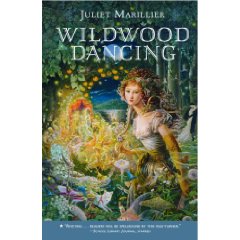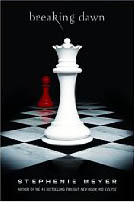Review of Book of a Thousand Days, by Shannon Hale, Audiobook

Book of a Thousand Days
by Shannon Hale
read by Chelsea Mixon and the Full Cast Family
Full Cast Audio, 2008. 6 compact discs, 7 hours, 30 minutes.
Starred review.
Sonderbooks Stand-out 2009: #1, Audiobooks
When I first read Book of a Thousand Days ( http://www.sonderbooks.com/Teens/book_of_a_thousand_days.html ), I wasn’t quite ready to declare it the best book I’ve ever read. Could I really put it ahead of my long time declared favorites, The Blue Castle, by L. M. Montgomery ( http://www.sonderbooks.com/Fiction/bluecastle.html ), and The Blue Sword, by Robin McKinley ( http://www.sonderbooks.com/YAFiction/BlueSword.html ), or ahead of Shannon Hale’s own The Goose Girl (http://www.sonderbooks.com/YAFiction/goosegirl.html)?
Well, after listening to Full Cast Audio’s fabulous production, I can say without a moment’s hesitation that this is by far the best audiobook I have ever listened to, and the story itself is definitely one of my all-time favorite books. Okay, I’m still equivocating with the print books (simply because of having so many so much loved old favorites), but in the middle of listening to this book, I found myself gushing like a teenager to my son that this is the “best book in the world”!
Full Cast Audio surpassed itself with this production. The voices suited the characters perfectly. I especially liked Lady Saren’s voice, seeming timid and tentative at the beginning, but growing in strength. Chelsea Nixon, who read Dashti’s voice, was wonderfully expressive. They even included the snatches of the Healing Songs that Dashti sings throughout the book.
Lady Saren has been condemned to be sealed into a tower for seven years because she refuses to marry Lord Khasar. Her father decrees this on the very day that Dashti the mucker maid showed up to be Saren’s new lady’s maid. So Dashti enters the tower with Lady Saren, and their adventures begin.
Saren is terribly afraid of something. So afraid that when Khan Tegus, the man Saren secretly promised to marry, shows up outside the tower, Saren makes Dashti speak with him, pretending to be Saren.
This book is a magnificent piece of writing. All of the growth and development is done gradually and masterfully drawn out. Dashti grows as a servant and as a person. She grows in her mastery of the magic of the Healing Songs. She grows as she figures out what is really going on with the evil Lord Khasar. Meanwhile, Saren grows as Dashti calms her fears. And the love story blossoms, slowly, gradually, beautifully.
When my CD player finished the book and cycled back to the beginning of the last CD, I found I couldn’t bring myself to eject it, and I’m listening to that last wonderful section all over again. I don’t want it to be over!
A magical and beautiful book.
Find this review on the main site at:
www.sonderbooks.com/Teens/book_of_a_thousand_days_audio.html








